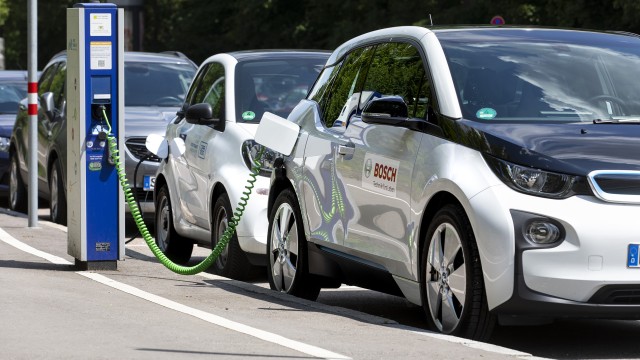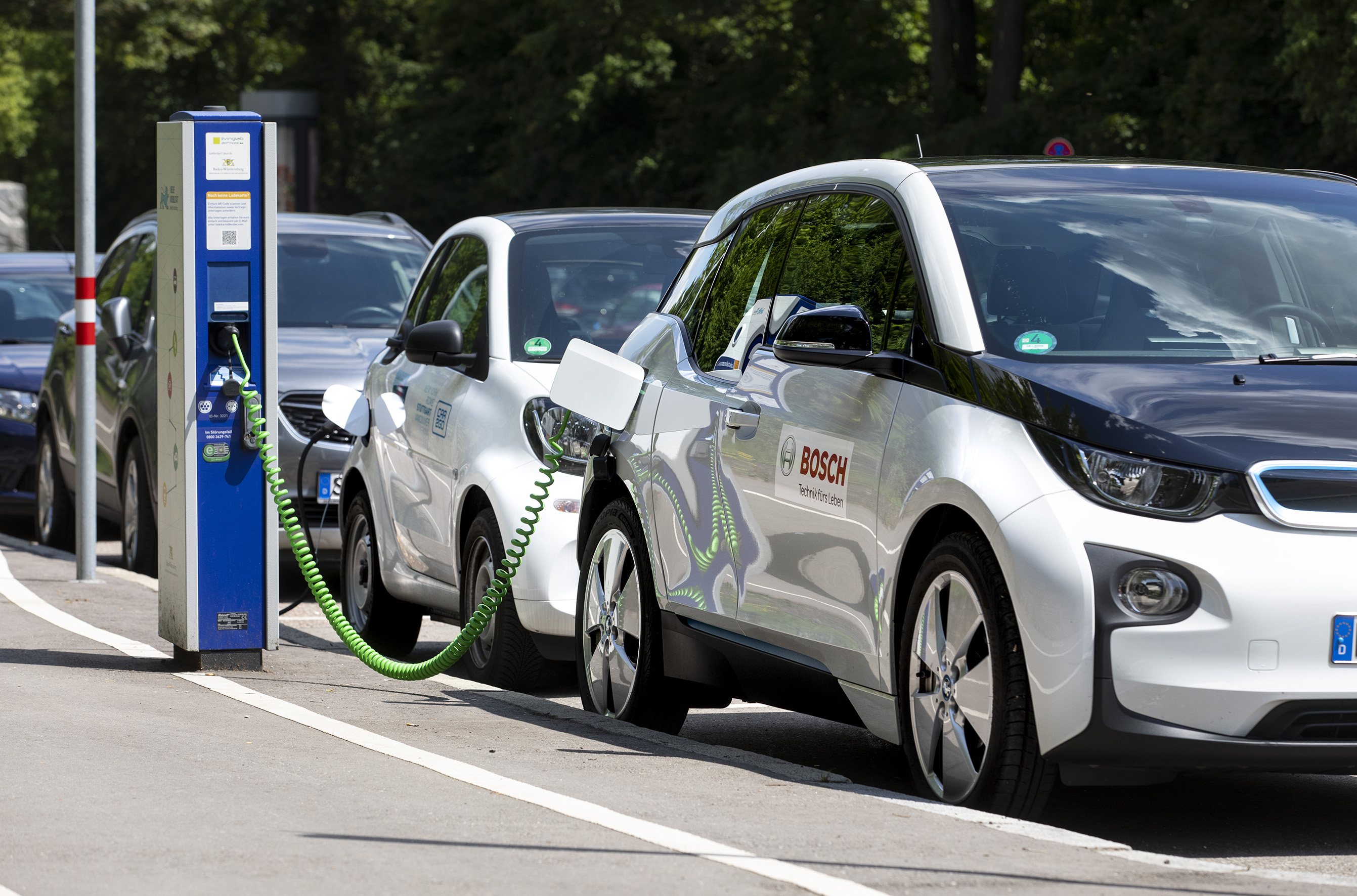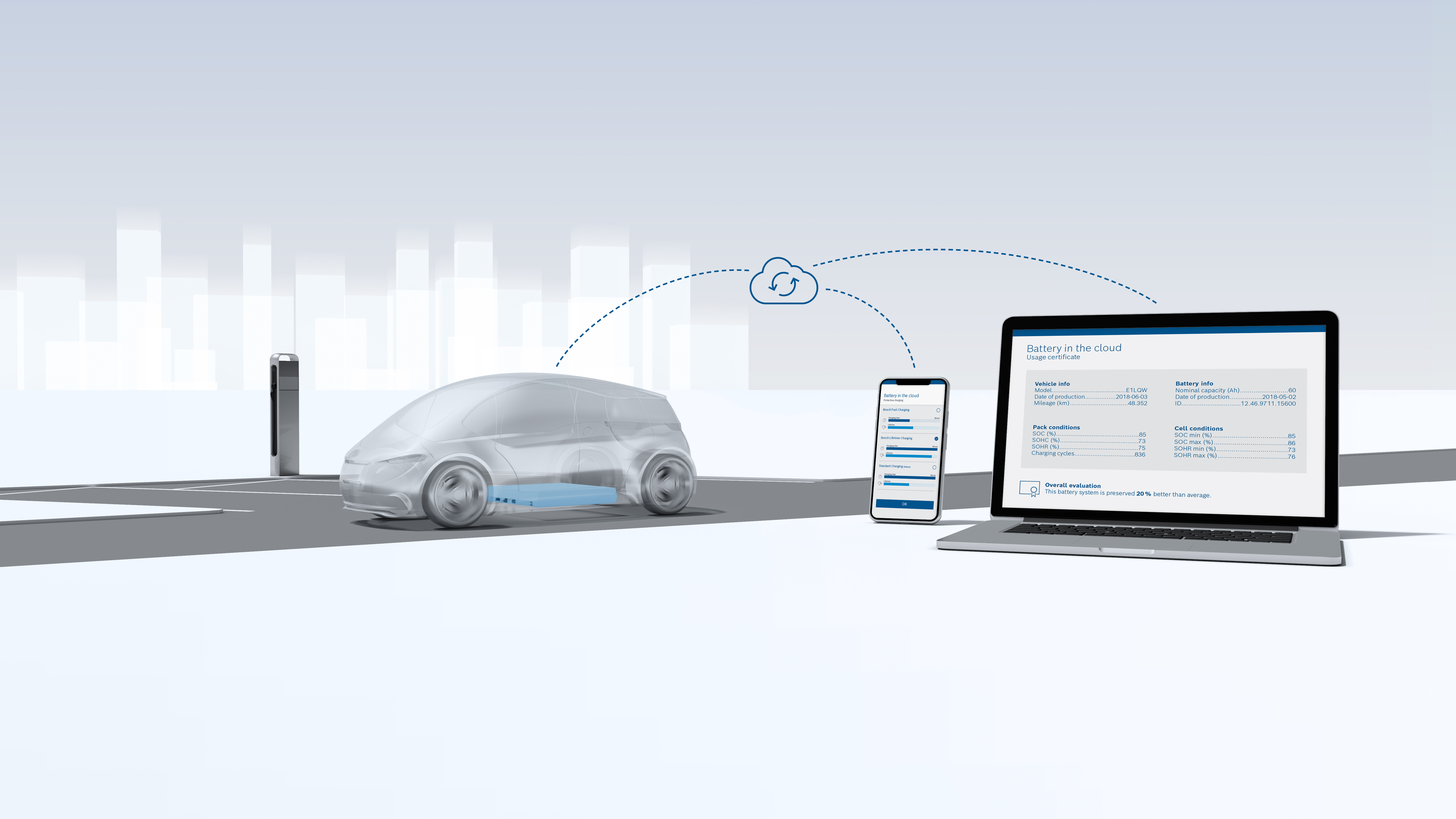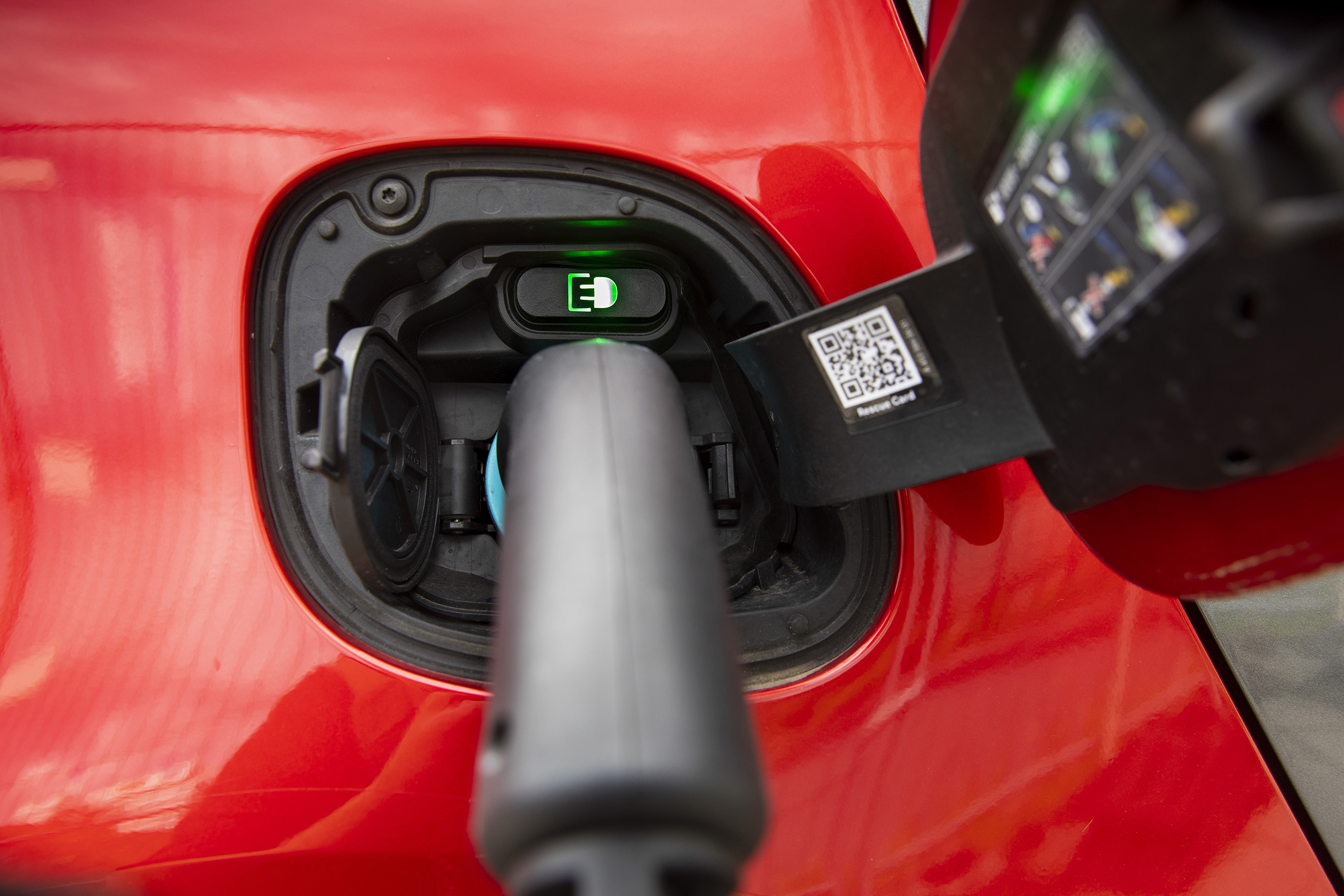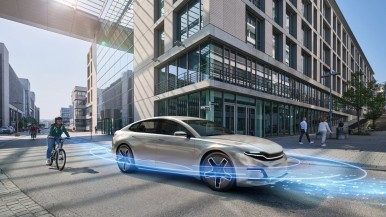Stuttgart, Germany – Stress makes cells age faster. Something that geneticists have long since demonstrated for the human body is also true for electric-vehicle battery cells. The older the batteries get, the lower their performance and capacity, and the shorter the range of the vehicle. To help batteries last longer, Bosch is developing new cloud services that supplement the individual vehicles’ battery-management systems. “Bosch is connecting electric-vehicle batteries with the cloud. Its data-based services mean we can substantially improve batteries’ performance and extend their service life,” says Dr. Markus Heyn, member of the board of management of Robert Bosch GmbH. Smart software functions in the cloud continually analyze the battery status and take appropriate action to prevent or slow down cell aging. These measures can reduce the wear and tear on the battery, the most expensive component of an electric vehicle, by as much as 20 percent. Real-time data gathered from the vehicle and its surroundings plays a key role here. The cloud services utilize this data to optimize every single recharging process and to provide drivers with tailored driving tips on how to conserve battery power via the dash display. Didi Chuxing, a globally leading mobility platform based in China, is working with Bosch to introduce Battery in the Cloud across DiDi’s electric vehicle fleet. The aim is to optimize battery performance, thus benefiting both drivers and fleet operators within DiDi’s ecosystem.
EXPERIENCE BOSCH AT THE IAA 2019 in Frankfurt: Rethinking mobility and making it as accident-free, emissions-free, and fascinating as possible – this is the goal Bosch has set itself. On a technological level, the supplier of technology and services wants to achieve these aims through personalization, automation, connectivity, and electrification. At the IAA 2019, Bosch will be presenting its latest solutions for making driving safer and more efficient, for making mobility available on demand, and for turning cars into personal assistants.
BOSCH PRESS CONFERENCE: On Tuesday, September 10, 2019, with Dr. Volkmar Denner, chairman of the board of management of Robert Bosch GmbH and Dr. Stefan Hartung, chairman of the Mobility Solutions business sector, at the Bosch booth in Hall 8.
FOLLOW the Bosch IAA 2019 highlights at www.bosch-iaa.de and on Twitter: #BoschIAA
Mobility is the largest Bosch Group business sector. It generated sales of 55.8 billion euros in 2024, and thus contributed around 62 percent of total sales. This makes the Bosch Group one of the leading mobility suppliers. Bosch Mobility pursues a vision of mobility that is safe, sustainable, and exciting. For its customers, the outcome is integrated mobility solutions. The business sector’s main areas of activity are electrification, software and services, semiconductors and sensors, vehicle computers, advanced driver assistance systems, systems for vehicle dynamics control, repair-shop concepts, as well as technology and services for the automotive aftermarket and fleets. Bosch is synonymous with important automotive innovations, such as electronic engine management, the ESP anti-skid system, and common-rail diesel technology.
The Bosch Group is a leading global supplier of technology and services. It employs roughly 412,000 associates worldwide (as of December 31, 2025). According to preliminary figures, the company generated sales of 91 billion euros in 2025. Its operations are divided into four business sectors: Mobility, Industrial Technology, Consumer Goods, and Energy and Building Technology. With its business activities, the company aims to use technology to help shape universal trends such as automation, electrification, digitalization, connectivity, and an orientation to sustainability. In this context, Bosch’s broad diversification across regions and industries strengthens its innovativeness and robustness. Bosch uses its proven expertise in sensor technology, software, and services to offer customers cross-domain solutions from a single source. It also applies its expertise in connectivity and artificial intelligence in order to develop and manufacture user-friendly, sustainable products. With technology that is “Invented for life,” Bosch wants to help improve quality of life and conserve natural resources. The Bosch Group comprises Robert Bosch GmbH and its roughly 490 subsidiary and regional companies in over 60 countries. Including sales and service partners, Bosch’s global manufacturing, engineering, and sales network covers nearly every country in the world. Bosch’s innovative strength is key to the company’s further development. At 136 locations across the globe, Bosch employs some 82,000 associates in research and development.
Additional information is available online at www.bosch.com, www.bosch-press.com.
